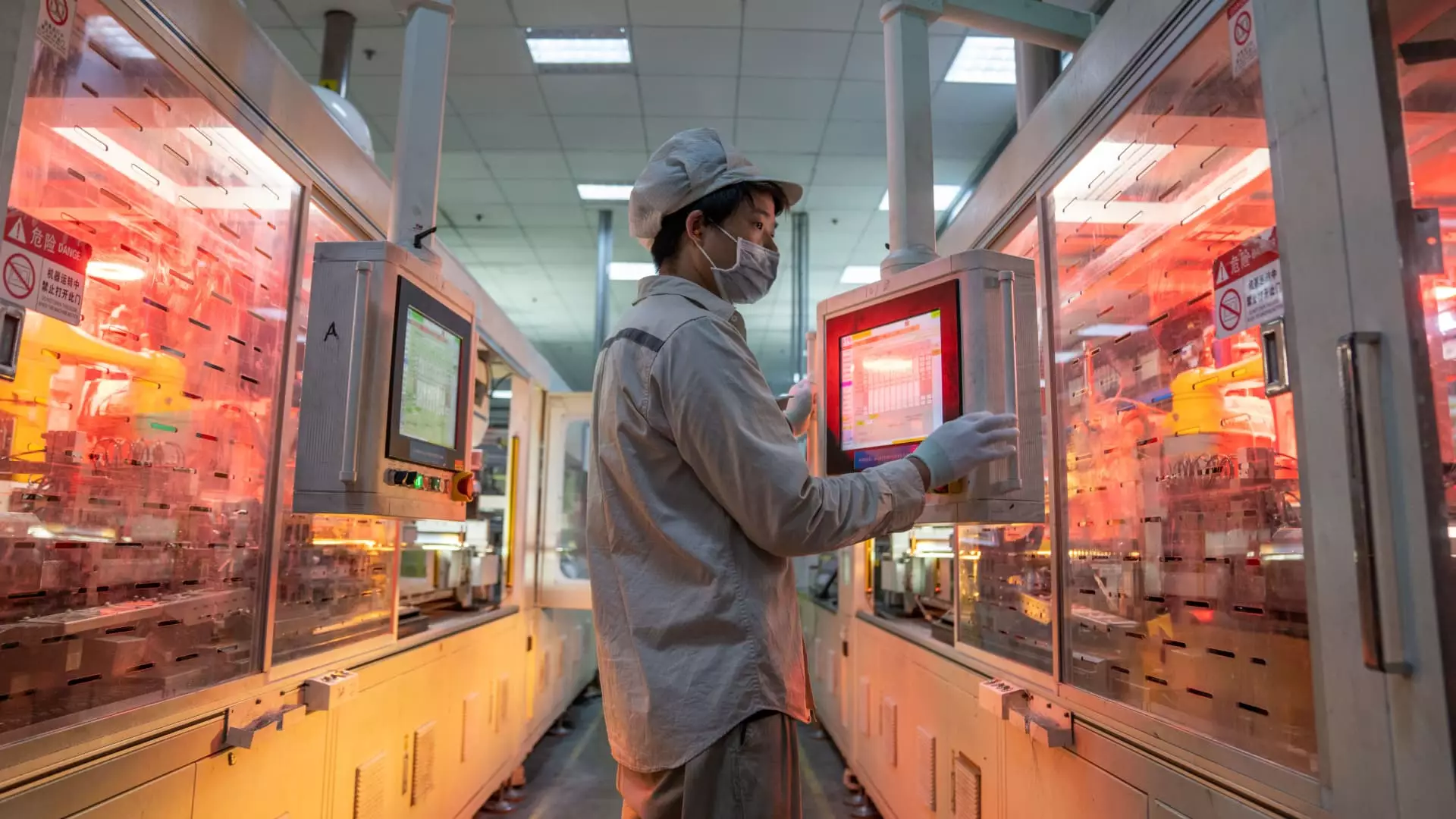Trade tensions between Europe and Beijing are on the rise due to China’s increasing ability to manufacture goods more affordably in key industries. Jens Eskelund, president of the European Union Chamber of Commerce in China, warned that Europe is facing a slow-motion train accident as strategically important industries are being priced out of the market. This has raised concerns about trade turning into a security issue, which may not be fully recognized in China yet.
Chinese authorities have been actively promoting high-end manufacturing to enhance technological self-sufficiency and reduce the country’s dependence on real estate for economic growth. Investment and state support for manufacturing have been increasing, while funding for real estate has been declining. However, this shift has led to worries about overcapacity, with Eskelund highlighting excess production in various sectors such as chemicals, metals, and electric vehicles.
The emphasis on manufacturing in China has significant implications for European businesses, especially in terms of trade flow disruptions and the potential deindustrialization of Europe. Eskelund emphasized the need for an open dialogue between Europe and China to address these challenges and ensure that most trade remains unaffected. With manufacturing accounting for a significant portion of employment and economic value added in the EU, the escalating trade tensions pose a considerable threat to European businesses.
A report co-authored by the EU Chamber of Commerce in China and China Macro Group highlighted the growing political risks for European businesses operating in China. While the EU has maintained a targeted policy stance, broader U.S. actions and China’s responses have made business operations in China more challenging for European companies. The report emphasized the need for diversification and strategic planning to navigate the evolving geopolitical landscape.
Markus Herrmann Chen, co-founder of China Macro Group, pointed out the increasing mentions of security in Beijing’s latest five-year plan, signaling a growing focus on coordinating development and security across government ministries. European businesses are already feeling the impact of U.S.-China tensions, with reports of market share decline and challenges in diversifying sourcing away from China. The geopolitical trap of dependence on Chinese sourcing while facing restrictions in the Chinese market poses a significant challenge for European companies.
Despite the geopolitical challenges and security concerns, the future of trade relations between Europe and China remains uncertain. With China becoming a dominant player in global exports and European businesses grappling with pricing pressures and market dynamics, there is a critical need for strategic planning and collaboration. As trade tensions continue to escalate, finding a balance between economic interests and security concerns will be crucial for both Europe and China to maintain stable and mutually beneficial trade relations.


Leave a Reply